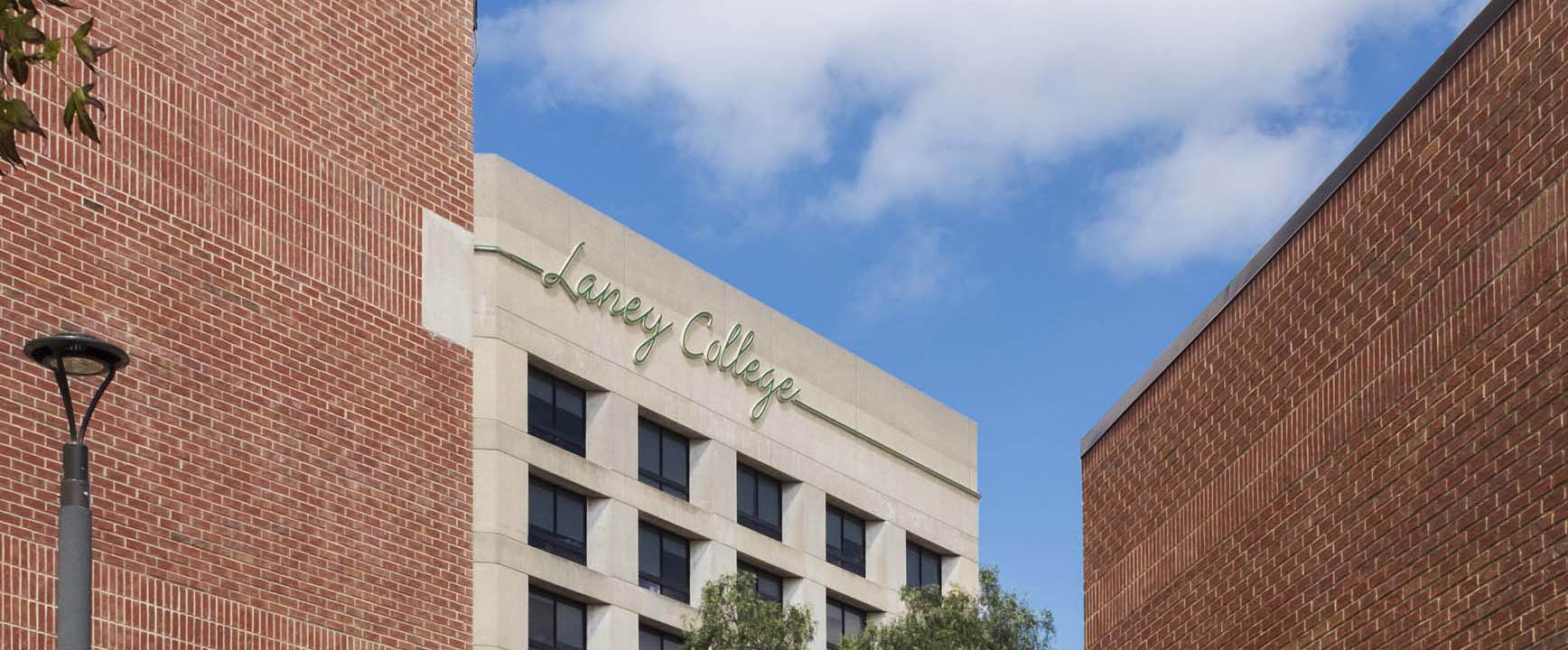PREVIOUS ACCOMPLISHMENTS during the 2015-16 planning cycle
| Equity Goals | Progress |
| Increase access for Veterans and Latinx students by 5 percentage points within five years | Hired a Veterans Counselor and support staff; provided expanded space and resources for a Veterans Resource Center; implemented book loan and BART voucher program for Veterans.
Preliminary planning for Asi Se Puede/Latinx Center program launch. Provided release time for program coordination, program materials, website development, and student ambassadors for outreach. |
| Increase course completion by 5 percentage points within five years for students who are African American and Foster Youth | Launched Umoja-UBAKA program. Provided release time for program coordination. Designated an Umoja-UBAKA space with embedded tutoring. Hired a designated part-time counselor and staff. Offered a workshop series on study skills, community engagement, and job seeking, and provided college trips and field trips. Hosted Black College Expo.
Expanded tutoring on campus in Math Lab, Writing Center, Tutoring Resource Center, Student United for Success (Athletic Field House), Umoja Village, DSPS High-Tech Center, and embedded CTE instructional aides. Preparing for CRLA certification for tutor training program to increase quality and quantity of tutors. Launched the Restoring Our Communities program to onboard and support formerly incarcerated and systems-impacted individuals. Provided transportation (BART), book and food vouchers to support student course completion and professional development for faculty. Launched Global Education for the People Initiative (GEPI) through the Laney Dance Department, which supported 52 students. A total of 14 students and two staff members participated in the Study Abroad to Ghana program and included travel and activities at the African American Male Education Network and Development (A2MEND) Conference. Students served as global ambassadors by hosting an information table to encourage other students to join with Laney College as global ambassadors to increase the number of community college students studying abroad. Implemented book and food voucher programs. Provided professional development for faculty, such as the ACE Five- Day Experiential Learning Institute (FELI). Other examples include: ● Equity Regional Summit ● Equity Summit ● Equity Week activities |
| ● Equity Speaker Series
● Dr. Joy De Gruy Professional Development Experience & Faculty/Staff Workgroup Showcase Incorporated social justice service learning in 10 courses across African American Studies, Ethnic Studies, English and Social Sciences. The Social Justice Center Initiative developed a task force of faculty to support student organizing. Students had the opportunity to work with social justice organizations such as Black Lives Matter, the Anti- Police Terror Project, Hip Hop for Change and Legal Services for Prisoners with Children.
Launched the Social Justice cohort and trained and paid students to organize on campus around racial and economic justice. This increased the number of student clubs and workshops available for students to be engage in on campus. Students organized healing workshops, art builds, rallies, film screenings, and coalition building with selected community partners. |
|
| Increase Basic Skills course completion by 5 percentage points within five years for African Americans in Math and English; for students who have a documented disability in Math and English; and for Latinx students in ESOL | Umoja-UBAKA program implemented.
Asi Se Puede/Latinx Center program development. Expanded tutoring and tutor training; incorporating tutoring for disproportionately impacted (DI) groups. Provided book vouchers and embedded tutoring for students with disabilities through the Disabled Students Programs & Services (DSPS) program. Developed noncredit support courses for DSPS students. Launched new two-week pre-semester Math Camp to improve outcomes on math assessment tests and reduce math anxiety. Developed noncredit ESOL course sequences, with a plan for offering at off-site locations to help onramp different DI populations, including Latinx students. |
| Increase degree and certificate completion by 5 percentage points within five years for African American, Latinx, Male, and students who have a documented disability | Implemented Umoja-UBAKA program.
Asi Se Puede/Latinx Center program development. Expanded tutoring and tutor training. Embedded tutoring for students in the DSPS program. Embedded CTE instructional aides and embedded counseling to promote degree and certificate application process and completion. Plan for a “completion campaign” coordinated with District. |
| Increase transfer rates by 5 percentage points within five years for African American and students who have a documented disability | Umoja-UBAKA program.
Embedded tutoring for students in the DSPS program. Instituted Transfer Day. |
| Hosted 4-year college representatives for UCs and CSUs. Increased the number of Associate Degrees for Transfer (ADTs) with CSUs. | |
| SSSP Goals | Progress |
| Orientation | Provided mandatory online orientation for students; expanded options for orientation: students may enroll in COUN 201 or COUN 224. Plan to translate orientations into Spanish, Cantonese, and Vietnamese.
Hired diverse pool of student ambassadors to work in Welcome Center. |
| Assessment | Hired additional assessment staff. Participated in Multiple Measures Assessment pilot project to place students based on HS GPA. Incorporated writing sample assessment and paid English and ESOL faculty readers to accelerate student placement into transfer-level classes. Launched Math Camp to improve math assessment. Now offer assessment periods throughout the semester rather than during limited peak enrollment. Implemented an online signup option for assessment appointments to streamline process for students. |
| Counseling | Hired six new SSSP counselors including Early Alert, Veterans, DSPS, SSSP Coordinator, High School Transitions. Implemented option for students to signup online for counseling appointments. Increased the number of student education plans. |
| Follow Up Services | Worked closely with the District to implement Early Alert pilot program. Follow-up calls are now initiated for students on academic probation and those that reach 15 units to ensure completion of a comprehensive educational plan. Developed plan to identify additional follow up services provided on campus through student support programs such as Financial Aid, Veterans, EOPS, CARE, etc. |
| BSI Initiative Goals | Progress |
| Redesign developmental education sequence | Redesigned English, Math and ESOL sequences.
New writing assessment increased the number of students placed directly into transfer-level English courses. |
| Integrated counseling pilot | Incorporated integrated counselors into two English development courses linked to writing workshop. |
| Supported curricular change with Communities of Practices | Communities of Practices developed in English, ESOL, Library help faculty integrate accelerated curriculum, sequence redesign, and collaborative support services. |
| Tutoring | Expanded tutoring. Improved and expanded tutor training. Provided tutoring to targeted disproportionately impacted groups. |
A. To what do you attribute your overall success or lack thereof?
Visionary leadership from faculty, staff, and administration helped launch and implement new efforts and add capacity to existing initiatives, despite administrative turnover. Faculty in Basic Skills took initiative to redesign curriculum and support those changes with communities of practice. New district-wide Math discipline meetings have helped solidify plans at the College in collaboration with sister colleges to benefit students.
Applying for the Basic Skills Transformation Grant helped faculty become informed about best practices around the state and energized them to make changes. Attending professional development as a group brought together strong teams who could implement ideas on campus.
Hiring additional counselors added capacity to ensure core services of assessment, orientation, student education plans, and follow up services were expanded. Campus-wide conversations about student equity have changed the dialogue on campus, ensuring that an equity lens is brought to all aspects of instruction and services. Students have engaged in participatory governance committees, bringing their voice to help improve our processes.
Without a full-time institutional researcher, we have struggled to get accurate data to quantify our progress; hiring a researcher is a high priority and currently in progress.
B. Identify one goal from your 2015-16 plans that intersects SSSP, Student Equity, and BSI and describe the integration activities.
|
Goal |
Activities in each program that serve the goal listed | ||
| SSSP | Student Equity | BSI | |
| Basic Skills | Multiple measures, | Instituted Umoja- | Development of accelerated |
| completion, | placing students by | UBAKA program, Asi | course sequences in English |
| including the | HS transcript grades | Se Puede/Latinx | and Math. |
| number of students successfully transitioning to | and English writing
sample place students at higher- level courses. |
Center program,
Provided embedded tutoring for DSPS program. |
Embedded tutoring. Integrated counseling. |
| college level math and English courses. | Math Camp to improve assessment scores for those | Expanded tutoring program and tutor training. | Expanded tutor training.
Math Camp to assist students |
| entering the math | improving math completion | ||
| sequence. | and persistence rates. | ||
| Instituted Early Alert | |||
| pilot. | |||
| Instituted mandatory | |||
| online orientation. | |||
C. Describe one strategy or activity that your college has implemented that is resulting in significant gains in student completion or closing of achievement gaps. The Chancellor’s Office will use this information to assist in dissemination of effective practices to other colleges.
- Multiple Measures assessment, utilizing high school transcript grades, often places students higher, shortening their pathway to transfer-level
- Strategically implementing Umoja-UBAKA and Restoring Our Communities programs based on Equity data has helped support African American and formerly incarcerated students.
- Developing accelerated courses, such as Math 240, shortens the length of time it takes to complete the basic skills courses enroute to



